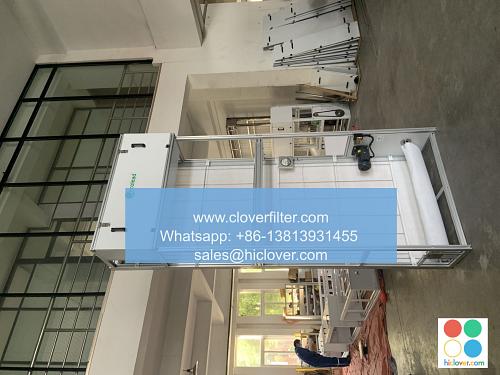Air Filter Standards in Canada: A Review of the Regulations

The air filter industry in Canada is governed by a set of regulations and standards that ensure the quality and performance of air filters used in various applications, including industrial air filtration, commercial HVAC systems, and residential air purification. In this article, we will review the key regulations and standards that apply to air filters in Canada, highlighting their importance in maintaining indoor air quality and occupational health and safety.
Introduction to Air Filter Standards
Air filters are a critical component in maintaining good indoor air quality, as they help remove particulate matter, gases, and odors from the air. In Canada, the air filter industry is regulated by various government agencies, including the Canadian Standards Association (CSA) and Health Canada. These agencies establish standards and guidelines for the design, testing, and certification of air filters, ensuring that they meet minimum performance requirements for air quality control and health protection.
Key Regulations and Standards
Some of the key regulations and standards that apply to air filters in Canada include:
* CSA Standard C439-14: This standard outlines the requirements for air filter performance and testing procedures for commercial and industrial air filters.
* ASHRAE Standard 52.2-2017: This standard establishes the requirements for air filter testing and rating for commercial and industrial air filters, with a focus on particulate matter removal and airflow resistance.
* Health Canada Guidelines: These guidelines provide recommendations for the use of air filters in residential settings and healthcare facilities, with a focus on indoor air quality control and infection prevention and control.
Application Areas
Air filters are used in a wide range of applications, including:
* Industrial Air Filtration: Air filters are used in industrial settings to remove particulate matter, gases, and odors from the air, ensuring a safe working environment and preventing occupational health hazards.
* Commercial HVAC Systems: Air filters are used in commercial HVAC systems to maintain good indoor air quality, reduce energy consumption, and prevent equipment damage.
* Residential Air Purification: Air filters are used in residential settings to improve indoor air quality, reduce allergens and irritants, and enhance overall health and well-being.
* Healthcare Facilities: Air filters are used in healthcare facilities to maintain sterile environments, prevent infection transmission, and ensure patient safety.
Importance of Air Filter Standards
The importance of air filter standards in Canada cannot be overstated. By establishing minimum performance requirements for air filters, these standards help ensure that:
* Indoor Air Quality is maintained at a safe and healthy level, reducing the risk of respiratory problems and other health issues.
* Occupational Health and Safety is protected, reducing the risk of workplace accidents and occupational diseases.
* Energy Efficiency is improved, reducing the environmental impact of energy consumption and greenhouse gas emissions.
In conclusion, air filter standards in Canada play a critical role in maintaining good indoor air quality, protecting occupational health and safety, and ensuring energy efficiency. By understanding the key regulations and standards that apply to air filters, manufacturers, and consumers can make informed decisions about the selection and use of air filters in various application areas, including industrial air filtration, commercial HVAC systems, and residential air purification. It looks like you didn’t provide a specific prompt. Could you please provide more details or clarify what you would like to talk about or ask? I’m here to help with any questions or topics you’d like to discuss.

